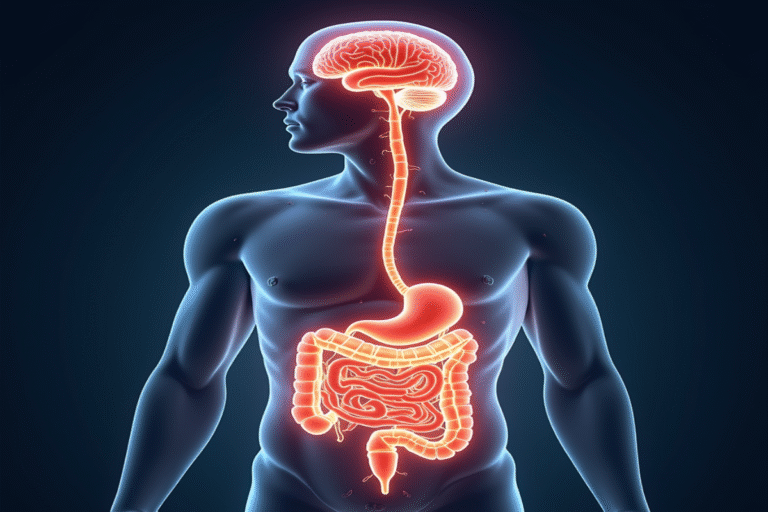The Universal Flutter We All Know
We’ve all felt it—that unmistakable fluttering sensation in our stomach before a job interview, first date, or public speech. This physical reaction to anxiety isn’t just in your head; it’s a fascinating example of how your brain and gut communicate during moments of stress or excitement.
Your Second Brain: The Enteric Nervous System
Believe it or not, your digestive tract houses what scientists call the “enteric nervous system”—a complex network of over 100 million nerve cells lining your gastrointestinal tract. This “second brain” operates somewhat independently from your central nervous system and plays a crucial role in creating those butterfly sensations.
When you experience nervousness or anxiety, your body activates its “fight-or-flight” response, an evolutionary survival mechanism that prepares you to face danger or escape from it. This triggers a cascade of physiological changes throughout your body, including your digestive system.
The Biochemistry Behind the Flutter
Here’s what’s actually happening inside your body:
- Stress hormones surge: Your adrenal glands release adrenaline and cortisol into your bloodstream.
- Blood flow redirects: Blood is diverted away from your digestive system to your muscles and brain.
- Digestive processes slow: Your stomach and intestines temporarily reduce activity.
- Muscles contract: The smooth muscles in your digestive tract respond with irregular contractions.
This combination of reduced blood flow and irregular muscle contractions creates that distinctive fluttering sensation we’ve all come to recognize as “butterflies.”
The Vagus Nerve: Your Gut-Brain Superhighway
The primary communication pathway between your brain and gut is the vagus nerve—one of the longest nerves in your body. It sends signals in both directions, allowing your emotional state to affect your digestion and vice versa. When anxiety strikes, the vagus nerve becomes highly active, transmitting signals that further contribute to those fluttery feelings.
“The gut and brain are constantly communicating via the vagus nerve. It’s like they’re having an ongoing conversation that we’re not consciously aware of until something like anxiety brings it to our attention.”
— Dr. Michael Gershon, author of “The Second Brain”
An Evolutionary Advantage?
This response might seem uncomfortable, but it served our ancestors well. When facing threats, the body prioritizes immediate survival over digestion. By temporarily shutting down digestive processes, more energy could be directed toward fighting or fleeing. Today, even though we rarely face physical predators, our bodies respond to psychological stressors in this same primitive way.
Beyond Butterflies: The Gut-Emotion Connection
This gut-brain connection works both ways. Research increasingly shows that gut health can influence mood and anxiety levels. About 95% of your body’s serotonin—a neurotransmitter that regulates mood—is produced in your digestive tract. This emerging field of study, known as “psychobiotics,” explores how gut bacteria may even influence our emotional responses.
Managing the Flutter
If butterflies are interfering with your performance, try these science-backed approaches:
- Deep breathing exercises activate your parasympathetic nervous system, counteracting the fight-or-flight response.
- Gentle physical movement helps burn off excess adrenaline.
- Mindfulness practices can reduce anxiety by focusing on the present moment.
- Visualization techniques prepare your brain for success rather than focusing on fear.
Remember that those butterflies aren’t just normal—they’re a sign that your body is working exactly as it’s designed to. The next time you feel that familiar flutter, you can appreciate the complex neurobiological dance happening inside you, preparing you to face challenges at your physiological best.
The Silver Lining
The physiological response that creates butterflies is nearly identical to what happens when you feel excitement or anticipation. This is why many performers and athletes learn to reframe their “nervousness” as “excitement”—a mental shift that can transform those flutters from a distraction into an energizing force.
So the next time butterflies take flight in your stomach, remember—you’re experiencing an intricate biological symphony that connects your most primitive survival instincts with your highest cognitive functions, all wrapped up in one peculiar but perfectly normal sensation.





